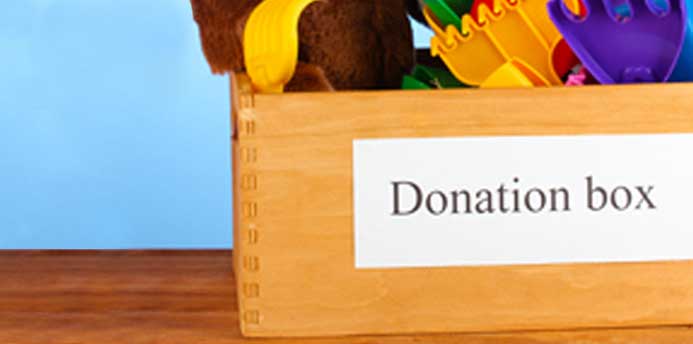Letting go of long-forgotten belongings can be tough for kids.
Like adults, children form emotional attachments to things, because they connect their stuff with the people and experiences that brought them together.
The late Fred Rogers, host of the PBS series “Mister Rogers’ Neighborhood,” once said, “The best thing about things is they remind us of people.” Equally important, though, is finding the value in letting go of things that are no longer useful.
Amy Trager, president of the National Association of Professional Organizers Chicago Chapter says that kids will easily get rid of stuff and be satisfied with the decision when their parents involve them in the process.
Here’s how to do it:
- Explain why it’s necessary to eliminate clutter. It might be to make room for new toys because of a birthday.
- Tell your child what will happen to the discards. Children understand donating to those who are less fortunate.
- Never tell a kid they have to keep something. It sends the wrong message. If it’s a keepsake to you, store it without letting them know.
Know the difference between collecting and hoarding
It’s typical for a child to collect things of interest to them, like toy cars or American Girl dolls, says Amy O’Leary, executive director of Youth Services of Glenview/Northbrook. It’s also normal for children to outgrow things they are attached to and develop new attachments. Hoarding is different. It’s about the control of knowing what you have and continuing to accumulate an assortment of things, O’Leary says.
A child who regularly has tantrums when a parent refuses to buy them something, or one who is ready to let go of an item but is tortured by the decision, is exhibiting signs of a problem, says Dr. Michael Tompkins, author of “OCD: A Guide for the Newly Diagnosed” (New Harbinger Press, 2012). Additionally, it’s atypical to collect a variety of items that are nothing special, such as broken pencils or pieces of paper.
What can you do about it?
Store clutter out of site, Dr. Tompkins says. If several months pass and it’s not missed, toss it. Also, reward the child with experiences, not things, when they do let go of stuff.
As with anything, if accumulating clutter interferes with a child’s everyday functioning, it’s time to seek counseling, Tompkins and O’Leary say. Hoarding might be a symptom of another serious mental health condition.
Photo: Donation box of toys by Bigstock

